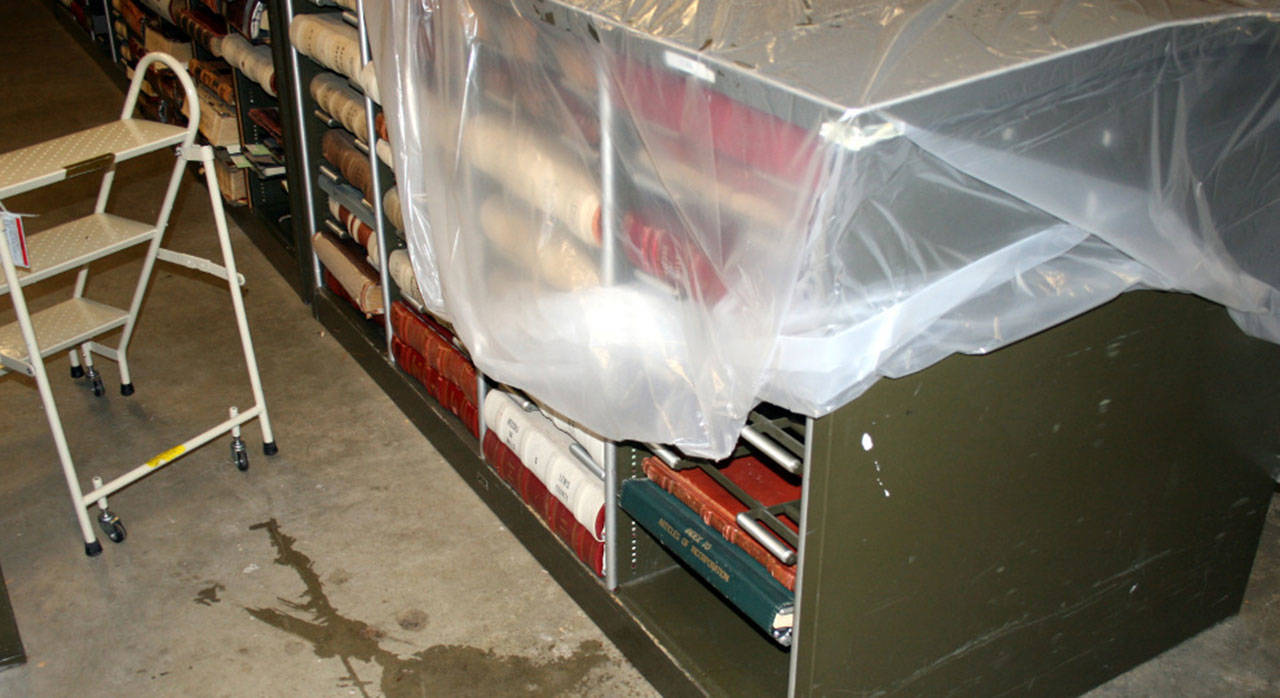By The Herald Editorial Board
Few of us would be comfortable keeping family photos; birth, marriage and death certificates; and other important family history boxed up in the basement with leak-prone water and sewage pipes hanging above them.
For more than a decade — as the state adds daily to its diary of history — state officials have looked to address not only a space crunch but provide a facility that safely stores some of the state’s most important historical documents, photos, maps, books and more, including the original state constitution of 1889; bound volumes of newspapers printed prior to statehood; state, county, court and legislative records and the first books of what would become the state’s library, shipped from the East Coast by Washington’s first territorial Gov. Isaac Stevens in 1853.
Millions of those records are now stored within the state archives at the state Capitol campus in Olympia. Packed among 238,000 cubic feet of storage space in a 1962-era building that doubled as a bomb shelter during the Cold War, documents are kept in a three-floor underground facility that has no fire-suppression equipment and with overhead water and sewage pipes that have leaked and flooded the facility at least three times in recent years.
After waterline break in 2014, archive staff rushed to cover shelves with plastic sheeting, Crosscut reported last month. Mops and buckets are kept at the ready to respond to standing water that seeps in after heavy rains.
The Olympia archive facility reached its capacity in 2005, forcing the move of documents to a state records warehouse in Tumwater, which itself was nearing overflow five years ago.
About 15 years ago, the state had planned to build a new facility at the Capitol campus, the Washington State Heritage Center, which would have housed both the archives and the state library, now in Tumwater, at a cost of $145 million. The building’s design was complete, but the Great Recession suspended the project before construction could begin.
Now, at the urging of Secretary of State Kim Wyman, who has responsibility for the archives and the library, a proposal is before lawmakers to build an $108 million facility in Tumwater, which is becoming the Capitol’s south campus.
Wyman, in past conversations with The Herald Editorial Board, has said her preference would have been to keep such a facility at the Capitol, but the urgency in protecting the state’s historical documents — and the ability to consolidate her agency’s many responsibilities that now use leased space elsewhere — prompted her to see the work done sooner and for significantly less than the heritage center would have cost.
Proposed legislation would authorize Wyman’s office to manage construction of the Tumwater facility, built on land that will be leased for 75 years from the Port of Olympia. Construction will be funded through bonds that will be paid off through what the state saves by no longer leasing space for her agency’s offices. Along with responsibility for running the state’s elections and keeping its voting records, and the state library and archives, the Secretary of State’s office also is responsible for registering corporations, charities and trademarks and participating in trade and cultural missions, among other duties.
Construction also would be funded by a $2 increase in the filing fee for records filed with counties and reallocation of 50 cents from another recording fee.
In sponsoring the House legislation, Rep. Beth Doglio, D-Olympia, observed the need to protect the state’s history.
“Every day, before we go out and vote on the floor, our caucus leader says, ‘Let’s go make history,’” Doglio said during a committee hearing last month on the bill. “It’s fitting that our state have a beautiful building that stores the archives of what we’re doing here today and what’s been done before us.”
Not all records that our state and local governments produce will be as revered as a constitution, a territorial governor’s speech or an early map of Snohomish County, but many are important to historians, educators and legal scholars because of the democratic necessity of having a record of the work of those who built the state and its communities and of those who continue that work.
That record deserves better protection than a box in a leaky basement.
Talk to us
> Give us your news tips.
> Send us a letter to the editor.
> More Herald contact information.

























